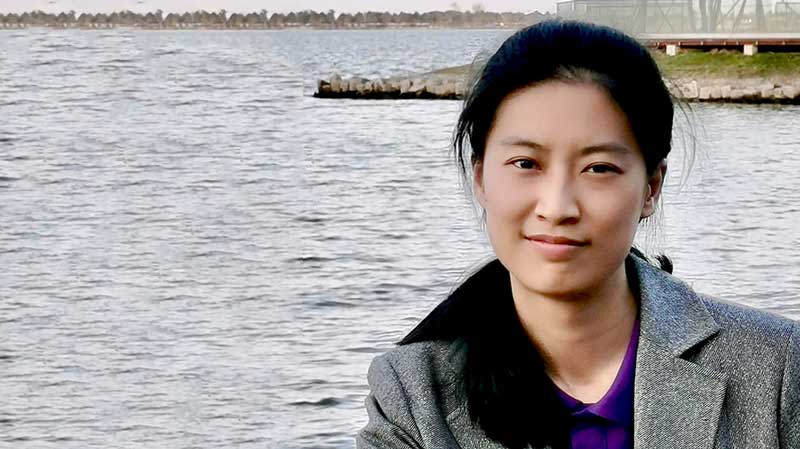Starting May 5, Dr. Kirsty Wan joins the B CUBE - Center for Biomolecular Engineering and the Cluster of Excellence Physics of Life (PoL) at TU Dresden as a visiting guest professor. Dr. Wan uses theoretical, computational, and experimental approaches to study the physics of motile cilia and the origins of active cellular motility. Her visit is supported by the Eleonore Trefftz Program at TU Dresden.
Dr. Kirsty Wan is a senior lecturer and research group leader at the Living Systems Institute at the University of Exeter, UK. Her group studies the locomotion strategies, i.e., motility of microscopic organisms, particularly those with cilia and flagella – microscopic projections of cells that allow them to propel themselves through fluids. Cilia are highly conserved organelles, meaning they are present in a rather unchanged form in single-cell but also in more complex organisms, including humans. The proper function and coordination of motile cilia are essential for many physiological processes inside the human body. Dysfunctional cilia give rise to a number of human diseases, collectively known as ciliopathies.
Locomotion of unicellular organisms is also a focus of research in the B CUBE and PoL groups led by Prof. Nils Kröger and Prof. Stefan Diez. During her stay in Dresden, Dr. Wan will collaborate with Dr. Veikko Geyer, a senior scientist in the Diez group, to investigate the physical principles underlying the oscillations in cilia and flagella. Moreover, she will work closely with Dr. Nicole Poulsen, a senior scientist in the Kröger group, to explore strategies used by gliding diatoms, a type of unicellular microalgae, to dynamically react to their environments.
“I am delighted to have this opportunity to work together with the researchers in Dresden. Our research interests align extremely well. In fact, Dresden with the B CUBE, the Center for Molecular and Cellular Bioengineering (CMCB), and the Cluster of Excellence Physics of Life is a major international hub for biological physics. I am excited to exchange ideas with other biophysics groups here and I can already see many opportunities for future collaborations,” says Dr. Wan.
About Dr. Kirsty Wan
Dr. Kirsty Wan obtained her Ph.D. degree from the University of Cambridge. From 2014 to 2017, she was a Thomas Nevile Junior Research Fellow at Magdalene College of the University of Cambridge. In 2017, she joined the University of Exeter where she is currently a senior lecturer in the department of mathematics and senior research fellow and group leader at the Living Systems Institute. Her research is supported in part by a Starting Grant from the European Research Council (ERC). More information is available on the group website of Dr. Kirsty Wan: https://micromotility.com
About the Eleonore Trefftz Program
The Eleonore Trefftz Program at TU Dresden facilitates visiting professorships forfemale scientists and gives them the chance to share their expertise with TU Dresden researchers and students. More information about the Eleonore Trefftz Program is available on the program website: https://tud.link/6f4v
